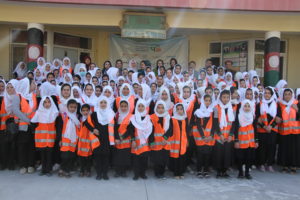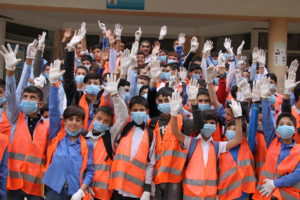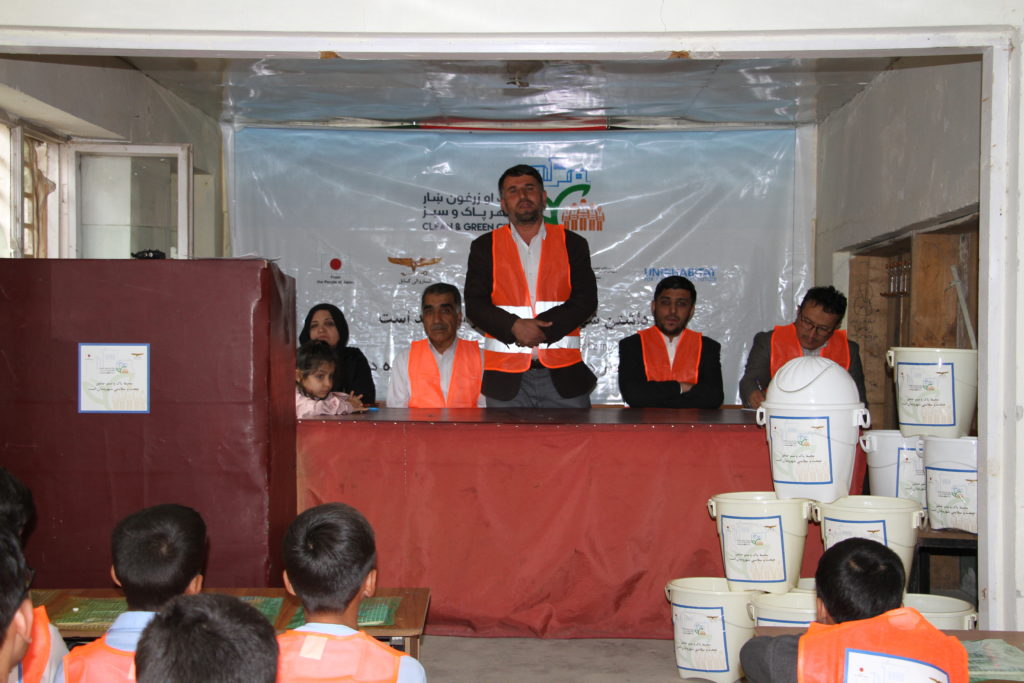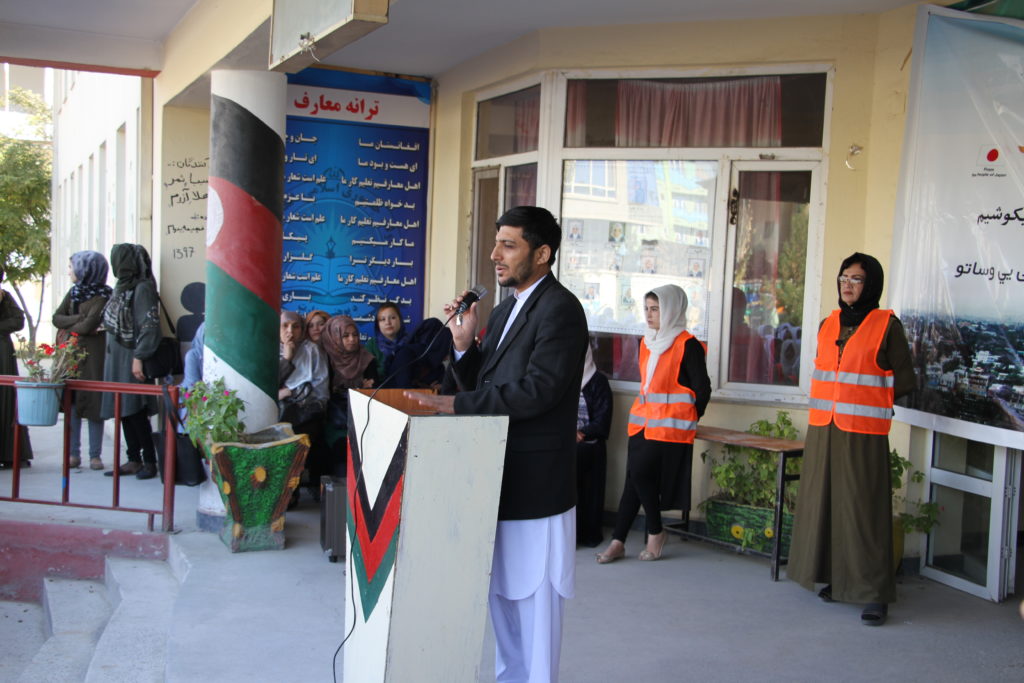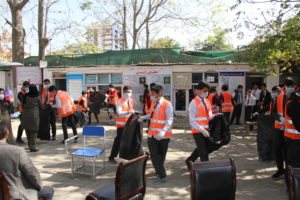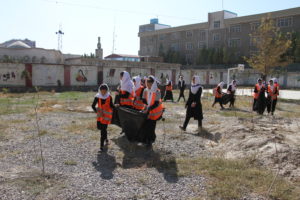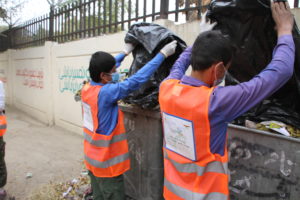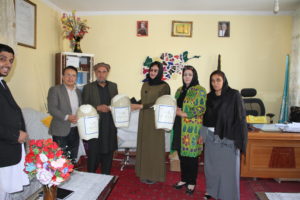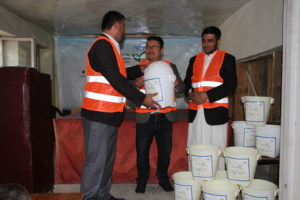The Solid Waste Management hands-on trainings for school children
Kabul, 22nd October 2019 – UN-Habitat provided the first Solid Waste Management hands-on trainings for school children in Kabul City, under the Clean and Green Cities (CGC) programme funded by the Government of Japan, to educate the students how to manage the waste more properly at houses, schools, neighborhoods and the city.
The Momena Khatun Girls’ School, Shaheed Zabiullah High School and Afaaq Private School of Kabul’s districts 2 and 4 participated in the trainings, where more than 200 students from different grades took part in and learned about waste management, importance of hygiene and sanitation, and expected risks if not appropriately collected and trashed.
The best part of the training was that the students actually practiced the waste management by themselves. The CGC provided vests, masks, gloves and bags to the students so that they could collect the waste around the schools and put them in the dustbins provided by the CGC.
During the training, the principle of Shaheed Zabiullah High School said: “cleaning our city is not only the responsibility of Municipality, but our and your responsibility too. I request you all students to participate in the cleaning of your school, home, and the neighborhood you are living and pass this message to your families”.
The CGC explained the role of students and youth in the city. “Dear students, cleaning our city is your conscientious responsibility as a member of society”, said Abdul Rahim Rahimi, CGC Team leader.
To respond to the need for continuous supports in improving sanitation status and employment opportunities, the Government of Japan has decided to support the Cleaning and Greening City Programme in Kabul City for a duration of one year starting from April 2019 to March 2020 in close collaboration with Kabul Municipality.
The programme will create 250 jobs/ 40,000 job days to the vulnerable people, especially IDPs/ returnees and Female-Headed Households, which will allow them to stabilize their living conditions and attend their basic livelihood needs. In parallel, 300, city residents will be able to enjoy improved sanitation conditions in their neighborhood, enhancing trust between the government and people for better service delivery. For Kabul, the most populated city in the country, the continuous effort for healthier urban development is critical and essential.

